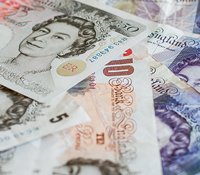THE UK ELECTIONS & IMPLICATIONS ON GBP
Published by Gbaf News
Posted on May 12, 2015
4 min readLast updated: January 22, 2026

Published by Gbaf News
Posted on May 12, 2015
4 min readLast updated: January 22, 2026

All FOREX eyes are on the UK as elections quickly arrive, especially with regard to the GBP currency pairs. Ashraf Laidi at City Index has laid out the predicted consequences of various election outcomes on the important GBP crosses. Important factors are the degree of uncertainty for the election’s outcome, the possibility and duration of a hung parliament, and the fundamental prospects for each GBP pair. Ashraf also perceptively describes why the result could be a lose-lose for the British pound, with a Labor/SNP coalition yielding the worst outcomes. His full analysis can be found here.
Pound Still Looking Vulnerable Against USD
Laidi sees the prospect for further weakness in GBP/USD and sets a downward target in the event of a Federal Reserve rate hike. A failure by the Fed to raise rates could send the pair northward to test its trend line. The currency pair is moderating, but Laidi sets an entry point for further selling as the election unfolds. An election that increases BoE dovishness could send GBP/USD cascading to important lows specified by Laidi.
Possible Reversal of EUR/GBP
The continuing weakness of this pair could reverse at a level specified by Laidi if the pound weakens further. However, a Tory win will likely keep the pair weak. On the other hand, if the new UK government agrees to an EU referendum or if deflation slows, watch for a new, higher target for the pair.
Best-Case Scenario Will Help GBP/JPY
A Tory win coupled with increased QE by the Bank of Japan should boost this pair above its December 2014 triangle. Laidi specifies entry points and targets. A Labour/SNP coalition could cause the pound to sell off around the world, especially if the BoJ postpones QE. Under the worst case scenario, Laidi sees a rout that sends the pair’s 200-day moving average to a level last seen in December 2012.

Eric Bank
GBP/AUD Not Too Negative
The Reserve Bank of Australia is expected to ease further, which could boost the pair. Any election outcome that strengthens the pound could break the pair out of its channel. Laidi analyzes the 100-day moving average and triangle resistance levels that you will want to incorporate into your trading. The downside risk for the pair rests on a Labour victory and no rate cut by the RBA, signaling a breakdown below support levels.
GBP/CAD Looking Neutral
Crosscurrents are at work on this pair: uncertain oil prices vs recovery in America and a possible Chinese stimulus program. Expect weakness if Labour wins and oil stays weak, with key support levels named by Laidi. A Tory win could see gains, with entry points and targets specified by Laidi. However, watch out for strength in Canada that will limit this pair’s upside.
GBP/NZD Vulnerable
Look for lower prices if the pair breaches an important support level. Catalysts for this breakdown could be a Labour/SNP coalition and higher NZ dairy prices, aiming for a price low going last seen in June 2013. The pair could retest its base if a Labour victory roils the stock markets or BoE eases.
FTSE Will Also React
Rebounding oil prices lifted the FTSE 100 to record highs, with assistance from a weakening pound and a better prospect for ECB-POLICY-SOURCES-e4bab80d-7aeb-4e49-a29a-ce14e1595c6d>ECB-POLICY-KAZIMIR-00b06d9b-4b99-46ce-a2aa-458d8eb2d993>ECB-POLICY-SOURCES-e4bab80d-7aeb-4e49-a29a-ce14e1595c6d>ECB-POLICY-3fdc7763-f2c0-4c30-b494-8614852eaf43>ECB-POLICY-SOURCES-e4bab80d-7aeb-4e49-a29a-ce14e1595c6d>ECB-POLICY-KAZIMIR-00b06d9b-4b99-46ce-a2aa-458d8eb2d993>ECB-POLICY-SOURCES-e4bab80d-7aeb-4e49-a29a-ce14e1595c6d>ECB asset buying. A Tory win should strengthen the FTSE as long as an EU referendum isn’t a likely outcome. Laidi notes higher target for the FTSE 100’s five-year channel, especially if BoE clarifies the rate picture. However, a negative election outcome might break an upward trend line and take out the 100-week moving average. Laidi also recalls interesting 3- and 12-month results following the last five elections.
Summing It Up
Should the Conservatives lead the next government, look for the GBP to strengthen against most of its paired currencies. A Labour victory almost assures a weaker GBP, especially if the SNP becomes a junior partner to Labour. Against the USD, beware of a stronger U.S. economy that forces the Fed’s hand. A hung Parliament will create uncertainty and volatility.
About the writer – Eric Bank
Eric is a financial writer and business analyst with a a Master of Business Administration from New York University and a Master of Science in Finance from DePaul University. Before taking up writing he worked at Citadel Investment Group, a large hedge fund.
Explore more articles in the Trading category











